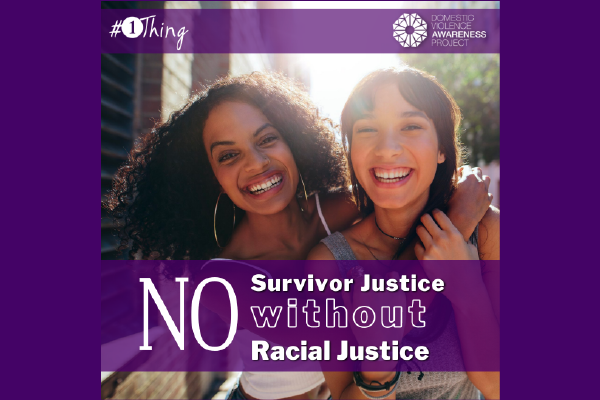As domestic violence rates increase, creating a crisis within a crisis — support is still available for victims, but can be difficult to access.
The lockdown conditions slowing the spread of COVID-19 are also increasing domestic violence. As reported in the New York Times, “Domestic violence goes up whenever families spend more time together, such as the Christmas and summer vacations,” according to Marianne Hester, a Bristol University sociologist who studies abusive relationships. At times of increased stress at home, coupled with a lack of social support and the inability to increase physical distance at home during conflicts, incidents of sexual and domestic violence and child abuse increase significantly.
First, for those of us who are suffering from domestic violence, remember you are not alone. Resources are still available in the midst of these unprecedented times of physical distancing. We encourage those who know of someone in a potential domestic violence situation to reach out to them, even if simply to offer the support of a caring person. Abusive situations intensify when victims feel isolated, alone, and powerless.
Reaching out for support isn’t easy for victims of domestic violence, especially with government directives to stay at home in effect. The National Domestic Violence Hotline offers guidance for Staying Safe During COVID-19 here. Katie Ray-Jones, the chief executive officer of the National Domestic Violence Hotline says her biggest worry is that victims can’t reach out for help, in a New York Times Opinion by Tanya Selvaratnam, who reported abuse by former New York state attorney general Eric Schneiderman in 2018 (a reminder that even the highest offices in the legal profession aren’t exceptions to domestic violence). Her article offers victims the following tips:
For victims, Ms. Ray-Jones advises that when an argument breaks out, it’s important to identify the safest place in the house, away from objects that may be weaponized, like the kitchen and bathroom. Prepare for a situation where an abuser might hide essential supplies, like soap.
While resources during the outbreak are limited, the experts I spoke to encouraged victims to seek out shelters, hotlines, therapists and counselors. Where walk-in service is no longer available, phone and digital communications are still working. Ruth Glenn, the chief executive officer and president of the National Coalition Against Domestic Violence, advises victims turn to a trusted friend or family member, if available, who can make a call to a hotline on their behalf should they not be able to do so themselves.
And in an emergency, Ms. Friedman recommends calling 911.
Safelink provides the statewide hotline available for victims of domestic violence in Massachusetts: 1-877-785-2020. For TTY, 1-800-799-7233. If you’re unable to speak safely, you can log onto thehotline.org or text LOVEIS to 22522. And Jane Doe Inc. offers help in Massachusetts. RESPOND, based in Somerville, serves New England.
Massachusetts courts are still open for emergency matters. Hearing for petitioners who feel they are in imminent harm and seeking restraining orders qualify. District Courts and Probate and Family Law Courts are both equipped to hear requests for restraining orders. Each of the individual courts’ as well as system responses to COVID-19 updates on how various matters are heard can be found here on the court system’s website. Assistance with court forms can be found on CourtFormsOnline.org from Suffolk University Law School’s Legal Innovation and Technology Lab.
A resource guide for domestic violence victims is offered here from the Massachusetts courts. A June 12, 2020 update is available here from the Trial Courts, responding to the needs of domestic violence victims during the pandemic. It reads in part:
Instead of going to the court in person to request an abuse or harassment protection order, the person filing the complaint (plaintiff) should first contact their local court clerk’s or register’s office by phone and, if safe and able to do so, can fill out the relevant form using a fillable PDF, or can give a court employee the information over the phone. Plaintiffs can access information about the process and forms on the court system’s website here. Contact numbers for individual courts and offices can be found online on the Courthouse Locator page.
Once the preliminary paperwork has been completed, the plaintiff will be connected to a judge and, if an order issues, the plaintiff will receive a copy of the order either by email or, if necessary, in person, which includes notice of the scheduled hearing at which the defendant can challenge the order. The order can be emailed to the appropriate police departments to ensure rapid notice to the defendant.
The Trial Court has obtained Zoom licenses to improve the court’s ability to conduct these hearings virtually and allow for face-to-face interaction. Additionally, the court is coordinating with the victim services community, other governmental agencies, and the governor’s office to help inform the public of this change in practice and the availability of remote hearings. Court Service Centers, Trial Court law libraries and individual courts have updated contact information for victim advocates to provide to callers, including the 24/7 SAFEPLAN hotline (877-785-2020). The court website has a resource guide that lists region-specific advocacy services for individuals seeking abuse or harassment prevention orders.
For general questions, or if a caller cannot reach a clerk’s or register’s office, the Trial Court established a Help Line that the public can call to ask general questions about their civil and criminal cases and help them navigate the court system. The Help Line is staffed from 8:30 a.m. to 4:30 p.m., Monday through Friday, and can be reached by calling 1-833-91COURT.
Free & Confidential Consultations:
Lawyers, law students, and judges in Massachusetts — and their family members — personally experiencing domestic violence and those in the Massachusetts legal profession experiencing vicarious trauma can schedule a Free & Confidential online appointment with one of our licensed therapists. Find more on scheduling here or give us a call at 617-482-9600.
The more we focus on what we have control over in an otherwise chaotic situation, the more we can feel empowered to make small, yet important, changes. There are also many virtual supports aimed at other sources of stress during this crisis, including telehealth appointments with doctors and therapists. Our organization runs a range of Free & Confidential groups (currently meeting online) for lawyers, law students, and judges in Massachusetts, including ADHD, Addiction Recovery, and many more. Finally, find all our COVID-19 Resources here.
In order to stop the cycle of violence, it is important for all parties in domestic violence situations (victims, witnesses, and those causing harm to others) to receive help. Hotlines, residential services, support groups, education, anger management services, and more are available during this time of pandemic. Those in the Massachusetts legal profession can speak with a licensed therapist at LCL for a therapist referral, and can find more support from Emerge.




